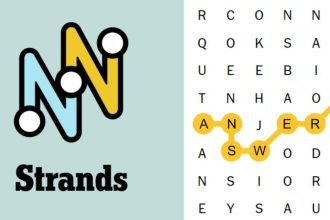- Tina Sendin used the AI writing tool Jasper.ai to write articles for a project on a tight deadline.
- The longtime client discovered the articles were AI-generated and ended their working relationship.
- Sendin still uses AI because she can double her output but is clearer with her clients.
I work a full-time job in marketing and do freelance writing on the side.
I was juggling a lot when a longtime client commissioned me for a three-month project. It entailed writing a series of how-to guides and 56 articles for their site.
Since I couldn’t clone myself, I tried what I thought would be the next best thing: I used AI.
Convinced that I could use the new technology to meet extremely tight deadlines, I started using Jasper.ai to produce up to 20 pieces in a month for this client.
I was using AI to clone myself as a writer
I essentially used Jasper.ai as an extension of myself.
I’d let Jasper write articles of up to 2,500 words. I used it more than alternatives such as ChatGPT or Bard because it has pre-built templates that function as prompts.
If I needed to expand on a sentence, I’d use Jasper’s “paragraph generator” or “commands” tool. If I needed to rewrite a sentence, I’d click on “content improver.” These features helped me overcome writer’s block and quickly build out long-form articles.
Jasper did most of the work and I did minimal editing.
AI lost me a longtime client
After working together for months, my client started using one of the first AI-content detectors. Upon discovering the content I gave them was AI-generated, they terminated our agreement and paid me less than 40% of the original fee after I’d delivered all the articles we’d agreed on.
While this was not the outcome I intended, it shifted my mindset on how to use AI to keep clients rather than lose them.
I learned a valuable lesson the hard way — AI is a tool, not something that should replace you.
Looking back, I know things weren’t right when I was letting AI do the work and not communicating this to my client.
Here’s how I use AI differently now:
AI is now a crucial part of my initial discussions with new clients
I ask if the client’s OK with me using AI-writing tools. If not, great; I won’t use it. If they see the value or don’t care whether I use them, then I’ll use them to enhance the quality and depth of what I write.
I use AI to enhance my draft
Some writers use AI to write a draft, then edit it to sound more human. I use it the other way around.
I draft the article first, then use an AI tool to enhance it and ensure I’ve maintained the client’s tone of voice.
I’d typically beef a draft up with some of Jasper’s templates — using the paragraph generator to expand a sentence into a paragraph, or using the content improver to rewrite text based on tone of voice or type of content.
Sometimes, Jasper will tell me additional things I can cover, so I’ll include them and support them with expert insights and examples.
I use AI to give me ideas on sources and statistics
Similarly to ChatGPT, Jasper is vulnerable to making mistakes with sources and research; its developers remind users to fact-check any statistics the tool provides. I regard the information it gives as a placeholder that gives me ideas for the kinds of sources, statistics, or websites I can seek out myself.
The key is always treating statistics and other hard evidence that AI produces as a suggestion.
AI helps with the tone of voice and brand voice
I’ll use Jasper to help me rewrite or add flair to a sentence using the “tone of voice” or “brand voice” features. I could even type in “Ryan Reynolds” and Jasper will rewrite a plain paragraph to sound like the actor.
AI helps with condensing large volumes of text
AI helps me summarize my research findings and insights from relevant subject-matter experts. I’ll upload snippets of a transcript, and the tool will return a condensed paragraph that still includes the salient points.
AI has cut my writing time in half
I used to take eight hours to write a 2,500-word piece, including research, writing, and editing. Now, with AI, it takes an average of four hours — even less when it’s a topic I’m highly familiar with, such as marketing and freelance writing.
Cutting my writing hours in half allows me to take on more assignments.
The best thing about AI is that it has improved my writing. Many people have said that AI tools churn out rubbish. That can be true — but AI outputs will be average at best if they come from vague, generic prompts. Clear and more specific prompts will improve the AI’s output.
AI scares me, but I think there’s a right way to use it
When ChatGPT achieved global fame, many writers shared their anxiety about being replaced by AI. I lost a longtime client to it. But treating it more as a friend than a foe has been beneficial.
A good number of articles I wrote for clients with the aid of AI have now landed on the first page of Google search results. Google doesn’t penalize content written with AI; they care about content quality, not about how it’s produced.
AI still scares me sometimes, but early adopters of new technology have historically reaped more rewards than punishments. AI is no different — it’s still in its infancy, and we’re yet to see its full potential.
I think about using social media for marketing in the early 2010s when Facebook ads weren’t a thing — or using TikTok to grow an audience as early as 2020. I think of how, a couple of decades back, using the internet could make things easier and faster.
To me, as with any technology, it’s about being specific and deliberate with it.
So I’ll continue to go with the flow. I’ll learn about AI, so I’ll know how to use it to improve my workflow and optimize my everyday work.
Read the full article here




